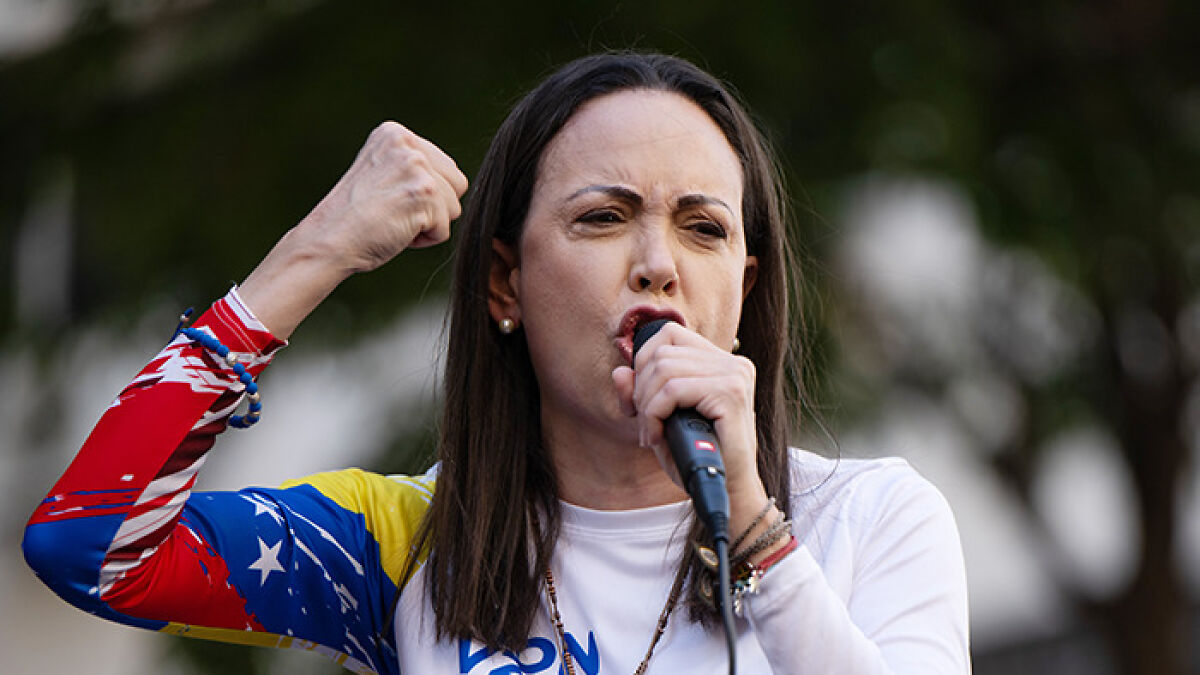
María Corina Machado: The Nobel Peace Prize Winner Who Advocates Military Intervention
After winning the Nobel Peace Prize in early October for promoting democratic rights in Venezuela, María Corina Machado quickly used her elevated profile to press forregime change at home.
“You cannot have peace without freedom, and you cannot have freedom without strength when you are facing a criminal structure,” she said when asked about possible U.S. military intervention in an interview published October 11—the day after the Norwegian Nobel Committee announced her selection.
- María Corina Machado won the Nobel Peace Prize for promoting democracy but advocates for U.S. military intervention in Venezuela.
- Machado envisions Venezuela as a $1.7 trillion economic opportunity with rapid mass privatization under her leadership.
- She supports Trump’s hard-line strategy against Maduro, labeling his government a criminal narcoterrorist structure.
- Machado aligns with far-right European groups and plans to move Venezuela’s embassy in Israel to Jerusalem.
- Her team influenced U.S. policy, pushing for designating Venezuelan gang Tren de Aragua as a terrorist group.
Her remarks came amid a series of U.S. strikes on alleged drug shipments in the Caribbean, which have heightened tensions with the government of VenezuelanPresident Nicolás Maduro.
Venezuelan opposition leader and Nobel Peace Prize laureate María Corina Machado. Image credits: Alfredo Lasry R/Getty Images
U.S. President Donald Trump has accused Maduro of links to organized crime groups, Cartel de los Soles and Tren de Aragua. Maduro denies the allegations.
Within weeks of her Nobel win, Machado was using her turbocharged visibility to outline a vision of the South American country as wide open to foreign investment under her leadership.
“Venezuela will be the single biggest economic opportunity for decades to come in this region,” she declared during a virtual appearance at the Fortune Global Forum in Riyadh on October 27, in which she spoke of a $1.7 trillion “business opportunity” and pledged a rapid mass privatization plan involving hundreds of enterprises.
U.S. President Donald Trump addressing military personnel in Michigan. Image credits: The White House
Days later, with speculation rising around potential military action inside Venezuela, Machado backed U.S. military activity.
“The strategy of President Trump towards this criminal narcoterrorist structure is absolutely correct,” she said on November 5 during a virtual appearance at the America Business Forum in Miami.
Who is María Corina Machado?
Hailing from an elite Caracas family, Machado co-founded electoral-transparency NGO Súmate in 2002 and was elected to the National Assembly in 2010 as an opponent of Maduro’s predecessor Hugo Chávez.
Expelled from the Assembly in 2014 on government-driven charges, she has since become the most internationally recognized opposition figure—while other leaders like Henrique Capriles and Leopoldo López have faded from the international spotlight.
“For many years, she wasn’t a popular leader at all. But then all of a sudden, she rises to the top,” said Elias Ferrer, a political and economic analyst based in Caracas.
Machado at an anti-Maduro protest in Caracas on January 9. Image credits: Jonathan Lanza/NurPhoto/Getty Images
According to Ferrer, Machado’s current prominence owes more to timing than to doctrinal differences with previous figureheads.
“It’s not so much that each of the leaders is different, it’s more like the moment is different,” he said, noting that Capriles and López once enjoyed similar profiles but are now far less popular inside Venezuela.
“What is interesting is that, as opposed to maybe other political leaders, she’s always sought support from the international far right,” adds Ferrer, who co-founded consultancy Orinoco Research.
Venezuelan President Nicolás Maduro. Image credits: Pedro Mattey/Getty Images
That outreach includes aligning with the European parliamentary grouping Patriots for Europe, which includes populist and far-right groups, including Spain’s Vox and France’s National Rally.
The day after her Nobel was announced, Machado said she would move Venezuela’s embassy in Israel from Tel Aviv to Jerusalem—a shift favored by many hard-line Christian and Jewish conservatives and carried out by the U.S. during Trump’s first term, but controversial in the context of Israeli-Palestinian diplomacy.
Venezuelans in Bogotá, Colombia, demonstrate in support of opposition leader Edmundo Gonzalez on the day before the third inauguration of President Nicolás Maduro on January 10. Image credits: Sebastian Barros/Getty Images
Relatively little is known about her domestic policy program beyond commitments to liberal democracy, transparency, and sweeping market openness.
“Everything that we say about her politics is not so much about her policy positions,” Ferrer said.
Shaping U.S. policy towards Venezuela
Machado has long referred to Venezuela as a narco-state, but phrases such as “narcoterrorist structure” have become more prominent since the start of Trump’s second administration. Yet, rather than reflecting Trump’s tone, it may indicate her movement’s influence on his team.
On January 6, two weeks before Trump’s second inauguration, four of Machado’s aides met in Washington, D.C. with Mike Waltz, then the incoming national security adviser, while Machado dialed in from Venezuela.
In that meeting, according to Reuters, her Washington lead, David Smolansky, argued that Maduro controls Tren de Aragua, reframing Venezuela’s turmoil as a U.S. national-security threat.
A military plane in Ceiba, Puerto Rico, amid a build-up of U.S. forces in the Caribbean. Image credits: Miguel J. Rodríguez Carrillo/Getty Images
In the weeks that followed, the U.S. government designated Tren de Aragua a terrorist organization.
Meanwhile, Machado’s team reportedly held at least eight meetings with senior members of Trump’s team, including Waltz and Secretary of State Marco Rubio, within the administration’s first four months.
Machado during the America Business Forum in Miami, Florida, in early November. Image credits: Alexander Tamargo/Getty Images
Even before the election, figures close to Machado had been providing U.S. agencies, media, and conservative think tanks with material casting Tren de Aragua as a Maduro proxy.
This included former Venezuelan police chief Iván Simonovis—described as an external security consultant to Machado’s team—alleging in media appearances that Maduro dispatched the group to destabilize the U.S., without offering evidence.
Alleged gang members, including those from Venezuela’s Tren de Aragua gang, arrive at the CECOP mega prison in El Salvador in March 2025. Image credits: El Salvador Presidency/Getty Images
A National Intelligence Council assessment published in April said that none of the 18 agencies consulted assessed there to be high-level coordination between the Venezuelan government and Tren de Aragua.
Yet in early September, while announcing the first Caribbean boat strike, Trump said the group was “operating under the control of Nicolás Maduro.”
Whether Machado is echoing Trump or Trump is amplifying Machado remains unclear. What is certain is that her rhetoric, market message, and Washington outreach have converged with a hard-line U.S. approach—and that convergence may carry outsized consequences for Venezuela and the wider region.
Department Of War Secretary Pete Hegseth. Image credits: The White House
Poll Question
Thanks! Check out the results:
1k+views
Share on FacebookIf she wins it’ll just be another right wing dictatorship run by US money
BP is now pushing a pro war message that advances the Trump desire to destroy a nation full of brown people so as to elevate his domestic popularity and give himself wartime powers. BP is helping to advance fascism.
Did you even read the article? It actually shows how she's in cahoots with Trump to start a regime change war in Venezuela and potentially unalive many brown people.
Load More Replies...How long have you been investigating this nonsense? Get the years right first. Since Chávez came to power, the candidate with the most votes has not been elected in any election. But some of that is related to the situation in Bogotá. Maduro is an illiterate minibus driver who fled the country. He wears three Rolex watches to check and decide which one is correct. Before people passed away or retired due to age, they were replaced by people from the same institute, faculty, and so on, with nonsense training. The engineers and computer systems knew how to do it, so they could just hire consultants. #SinLuz became the term for 'no light'. EVs are not unusual where gasoline was almost free, but a Tesla can also be used as a battery. Maria Corina took up the baton in this election; Leopoldo managed the crowd — she appeals to people's emotions. Many qualified Venezuelans are now living outside the country, some in Bogotá. Trump is not involved.
If she wins it’ll just be another right wing dictatorship run by US money
BP is now pushing a pro war message that advances the Trump desire to destroy a nation full of brown people so as to elevate his domestic popularity and give himself wartime powers. BP is helping to advance fascism.
Did you even read the article? It actually shows how she's in cahoots with Trump to start a regime change war in Venezuela and potentially unalive many brown people.
Load More Replies...How long have you been investigating this nonsense? Get the years right first. Since Chávez came to power, the candidate with the most votes has not been elected in any election. But some of that is related to the situation in Bogotá. Maduro is an illiterate minibus driver who fled the country. He wears three Rolex watches to check and decide which one is correct. Before people passed away or retired due to age, they were replaced by people from the same institute, faculty, and so on, with nonsense training. The engineers and computer systems knew how to do it, so they could just hire consultants. #SinLuz became the term for 'no light'. EVs are not unusual where gasoline was almost free, but a Tesla can also be used as a battery. Maria Corina took up the baton in this election; Leopoldo managed the crowd — she appeals to people's emotions. Many qualified Venezuelans are now living outside the country, some in Bogotá. Trump is not involved.


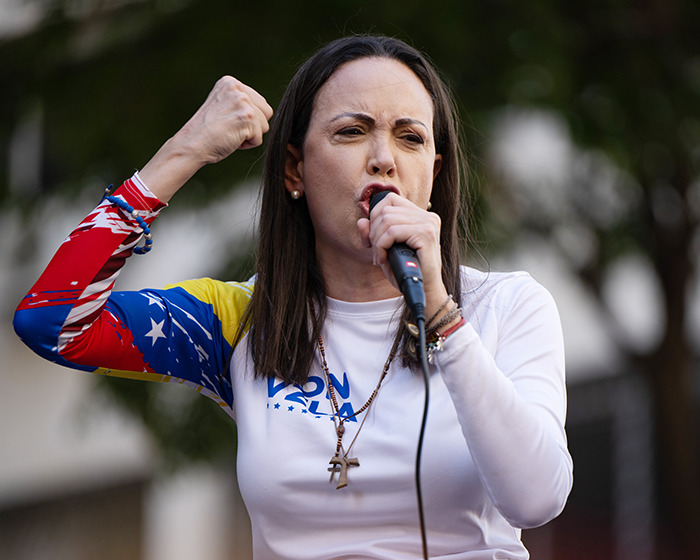
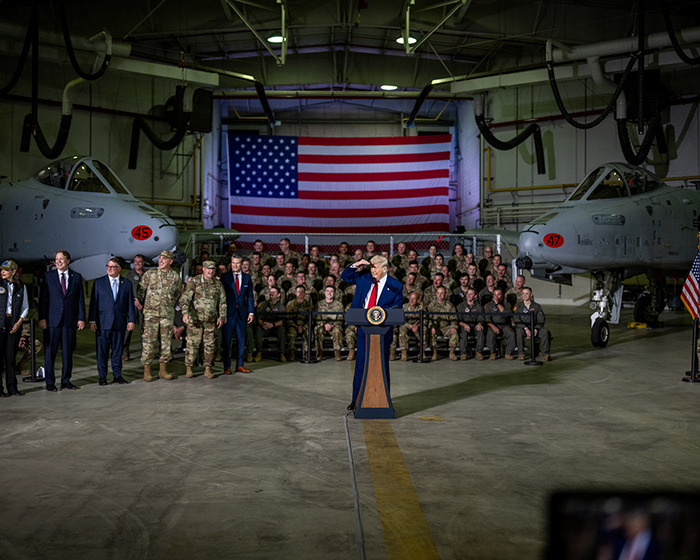
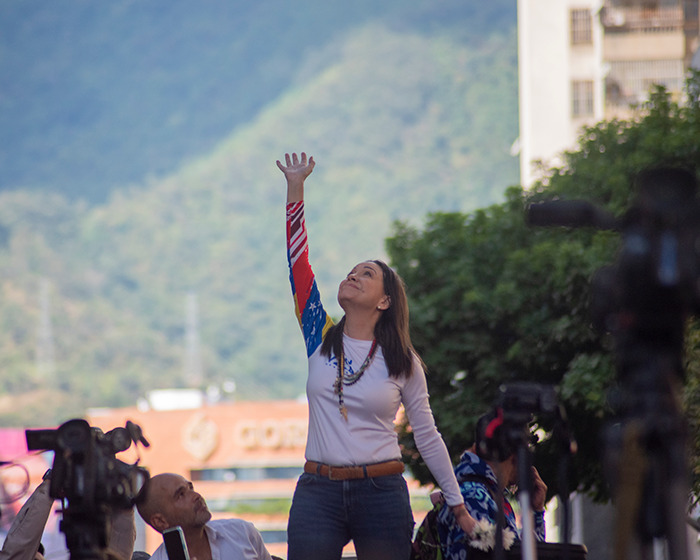
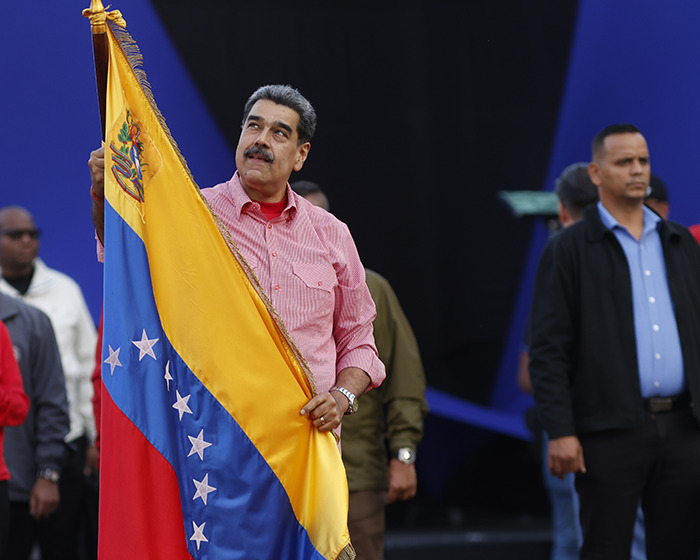
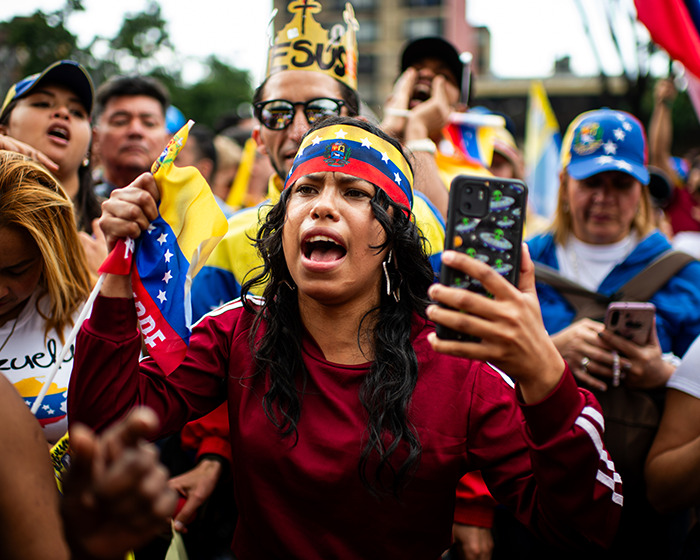
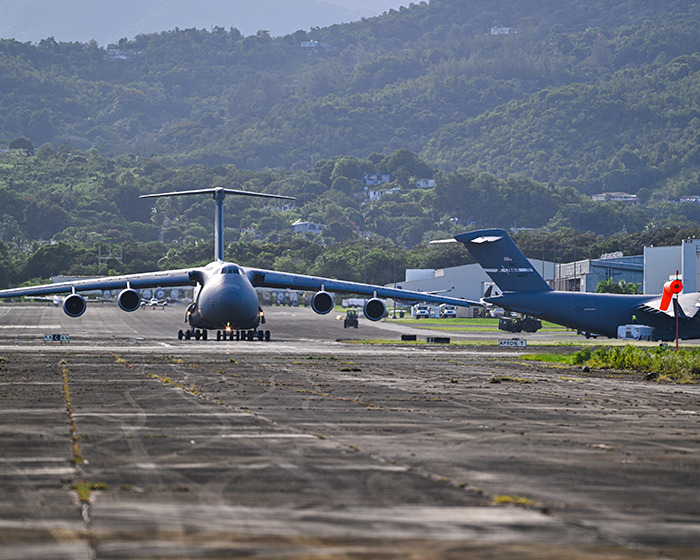






16
5